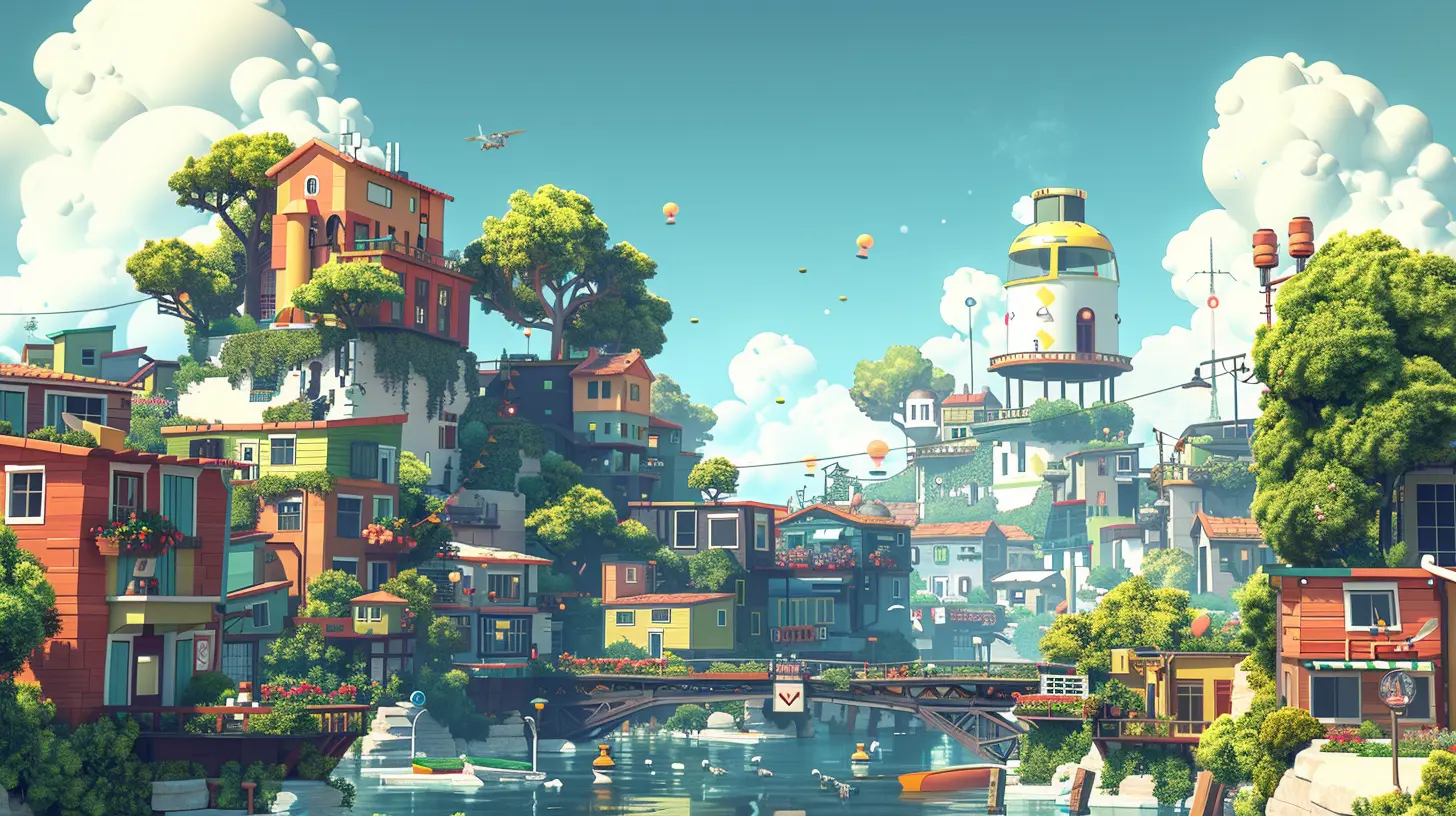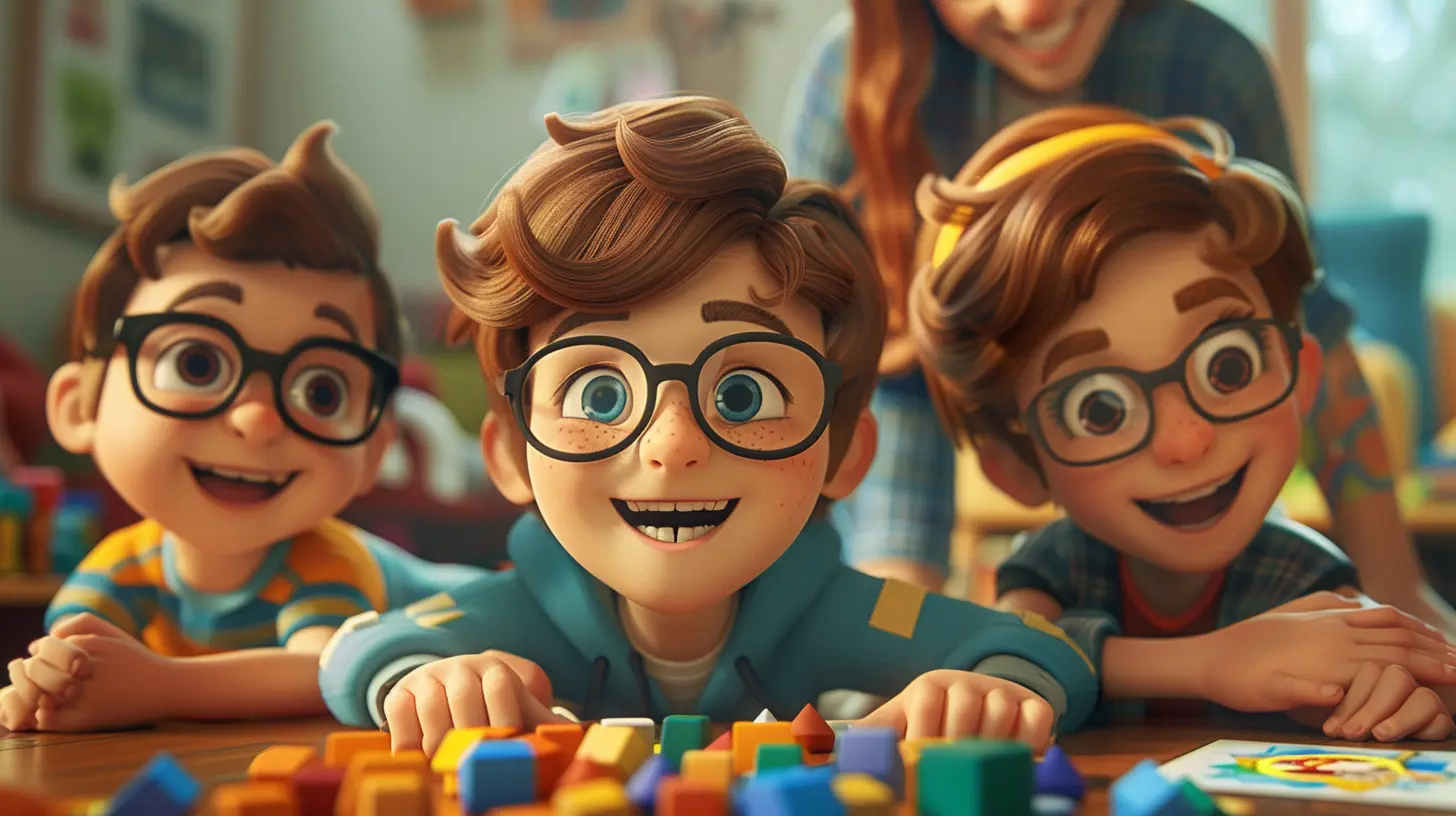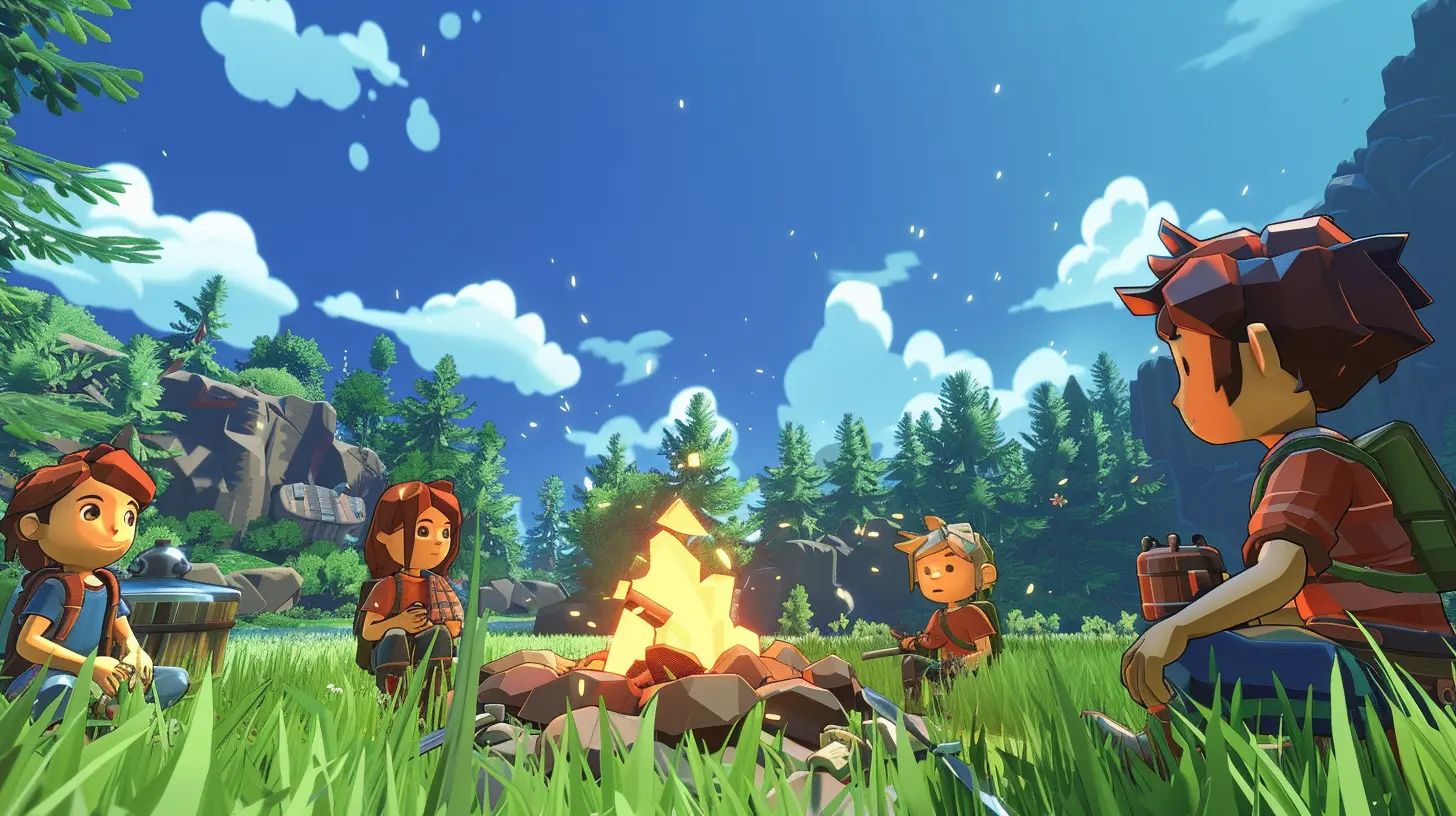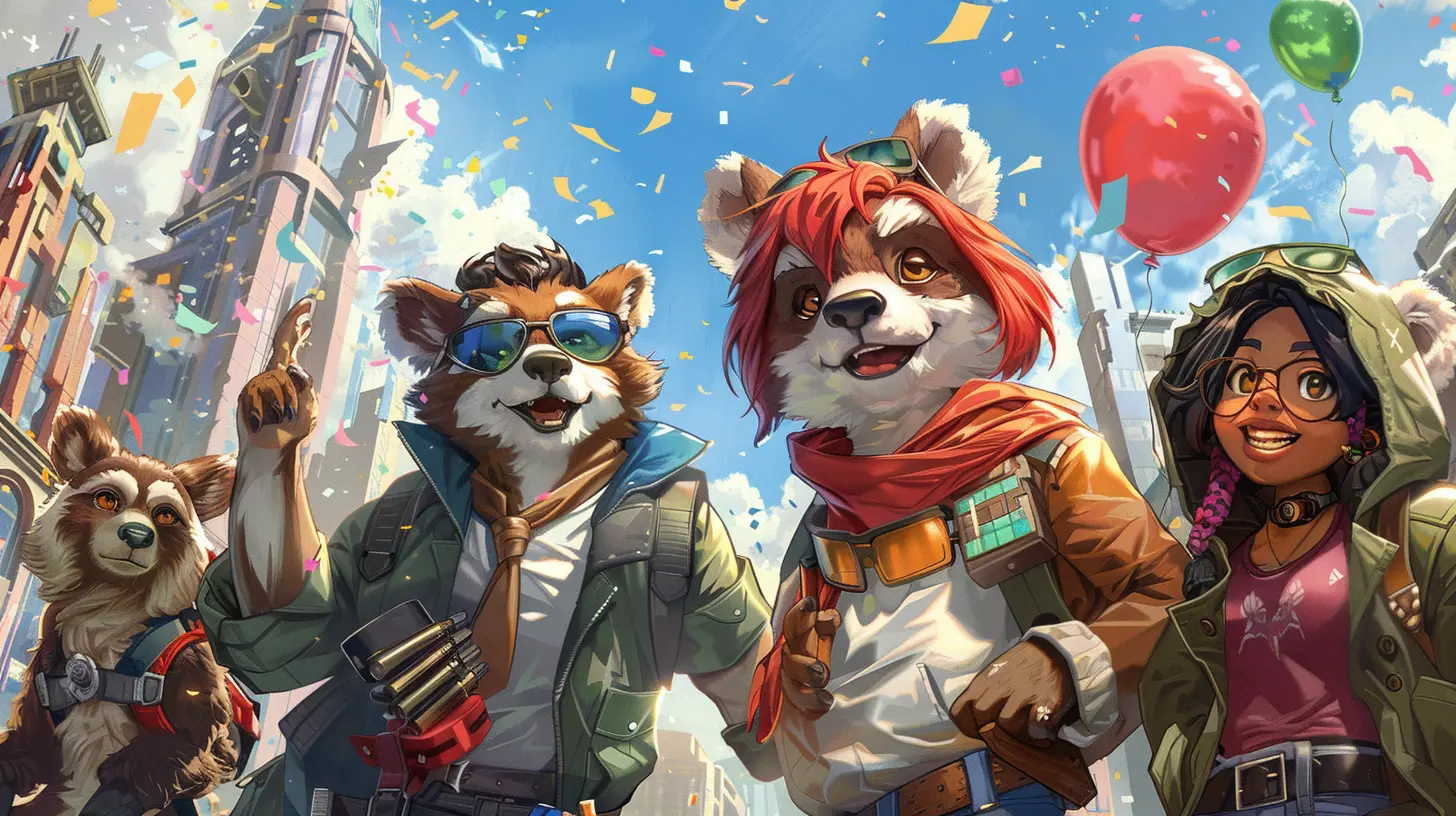29 March 2025
Imagine this—you're sitting with your friends, maybe online or in the same room, and the screen fades to the victory screen. The room (or chat) erupts into cheers, virtual high-fives, and shouts of “We did it!” That moment right there? That’s the magic of cooperative (or co-op) gaming—when winning becomes a shared triumph. In a world dominated by competitive leaderboards and one-on-one battle royales, co-op games remind us that sometimes the purest joy is in working together.
But what is it about co-op games that make them so special? Why do they have this uncanny ability to forge bonds, celebrate collective wins, and deliver a satisfaction that individual victories often just can’t match? Let’s dive into the psychology, fun, and undeniable charm of co-op gaming, and discover why teamwork makes the dream work.
The Heart of Co-op: Togetherness Over Individuality
Co-op games flip the traditional gaming script. Instead of players being pitted against each other, they’re united against a common challenge. It’s not about who’s the best or who can beat everyone else—it’s about combining your strengths to overcome obstacles. Whether it’s surviving waves of enemies, solving intricate puzzles, or pulling off a perfectly timed heist, the focus is simple: work together or fail spectacularly.Think about it—how often in life do we truly rely on others to accomplish a goal? Sure, group projects at school or collaborative work in the office happen, but they often feel mandatory. Co-op games, on the other hand, make teamwork fun. They’re like trust exercises, but instead of falling backward and hoping someone catches you, you’re fighting off a zombie horde with your buddy watching your back.
Why Team Success Feels So Good
Ever heard of the term “social bonding”? It’s that fuzzy warmth you feel when you connect with others on a deeper level. Co-op games are basically a fast track to social bonding. When you and your teammates manage to conquer a tough level or execute a near-impossible strategy, there’s a shared sense of achievement.Here’s why this works:
1. Shared Experiences, Shared Memories
When you succeed with a team, it becomes a story. "Remember that time in Overcooked when we almost burned down the kitchen, but someone saved the soup?!" These collective memories enhance friendships. It’s not just about the gameplay—it’s about the laughs, the struggles, and the victories you shared along the way.2. Complementary Strengths
In life, none of us can do everything alone, and co-op games take that idea and run with it. Maybe you’re the strategist, while your friend is the quick thinker. Or maybe you’re great at sneaking around while someone else is better at going in guns blazing. When everyone brings something unique to the table, success feels like a testament to your combined strengths.3. The Power of Positive Reinforcement
Let’s be real—getting a “good job!” from your teammate feels awesome. Co-op games create an environment where encouragement flows freely. When someone pulls off an epic clutch move to save the team, everyone celebrates their contribution. It’s validation, joy, and adrenaline all rolled into one.
Genres Where Co-op Shines Brightest
Not all games are made equal when it comes to teamwork. Some genres really elevate the art of co-op gaming, creating experiences you’ll want to come back to again and again. Here are a few:1. Survival Games
Games like Minecraft or Don’t Starve Together test your ability to, well, survive. You’ll need to pool resources, share strategies, and watch each other’s backs. Building a shelter at night while fending off enemies isn’t just a game mechanic—it’s a bonding exercise.2. Puzzle Solvers
Ever played Portal 2’s co-op mode? It’s a masterclass in teamwork. Puzzle-focused co-op games challenge you to think critically and communicate effectively. Pro tip: yelling “Press the button!” at the top of your lungs doesn’t always work, but it’s part of the fun.3. Action-Adventure
Games like A Way Out take you on emotional, story-driven journeys that demand collaboration. You’re not just playing a game—you’re telling a story together.4. FPS/Team Shooters
Left 4 Dead, Overwatch, Rainbow Six Siege—these games require coordination and strategy. You can’t lone-wolf your way to victory here, and that’s the point. Victory is sweet because it’s shared.
The Role of Communication in Co-op Gaming
You can’t win as a team if everyone’s on a different page. Co-op games often rely heavily on communication. You have to tell your teammates what you’re doing, listen to their plans, and adjust on the fly. It’s like a digital form of teamwork boot camp.Plus, the way you communicate can make or break the experience. Screaming at your friend because they forgot to heal the squad? Yeah, not great for morale. But cracking jokes during the chaos? That’s what makes it all worthwhile. And let’s admit it—those moments when everything descends into hilarious chaos are often more memorable than the victories.
The "Halo Effect" of Team Wins
Winning together doesn’t just feel good in the moment—it carries over into the real world. Psychologists call it the “halo effect.” When you experience success with someone else, you’re more likely to view them (and the relationship) positively. This is why co-op games are such a hit among friends, couples, and even strangers who bond over a shared goal.And here’s the kicker: you don’t even have to win for the halo effect to kick in. Sometimes failing spectacularly as a team is just as enjoyable. Screwing up together can be downright hilarious and oddly satisfying.
Couch Co-op vs. Online Co-op: Does It Matter?
Ah, the eternal debate: is couch co-op (where everyone’s physically together) better than online co-op? Honestly, it comes down to personal preference.Couch co-op has that nostalgic charm. You’re elbow-to-elbow with your friends, passing around snacks and yelling at each other in real-time. It’s intimate and chaotic in the best way. On the flip side, online co-op has convenience on its side. You can team up with that friend who lives halfway across the world or jump into a match at 2 a.m. in your pajamas. Both bring their own flavors of teamwork and joy, and the best part? You don’t really have to choose one over the other.
When Teamwork Teaches Life Lessons
Okay, let’s get a little deep here. Co-op games aren’t just fun—they can actually teach valuable life skills. Seriously. Think about it:- Communication skills: Learning to express yourself clearly and listen to others? Check.
- Problem-solving under pressure: Yep, those split-second in-game decisions translate to real-world challenges.
- Empathy and patience: Not everyone moves at the same pace, and that’s okay. Co-op games teach you to support others rather than blame them.
In a way, co-op games are sneaky little life lessons disguised as entertainment.
A Few Co-op Games to Get You Started
Ready to dive into the world of cooperative gaming? Here are some fan-favorite titles to try:- It Takes Two: A brilliantly designed game centered around collaboration. Perfect for two players.
- Overcooked (and Overcooked 2): Chaos in the kitchen has never been so fun—or stressful—in a good way.
- Phasmophobia: Hunt ghosts with your friends. Just try not to scream too loudly.
- Among Us: Deceptive co-op (with a hint of betrayal) that’ll have you accusing your closest friends.
- Stardew Valley: Build a farm, grow crops, and work together to make your own little slice of paradise.
Final Thoughts: The Joy of We Over Me
Co-op games capture something so pure and wonderful about human nature—the desire to connect, collaborate, and celebrate together. Sure, winning solo is satisfying. But when you’re part of a team, the wins aren’t just victories—they’re shared experiences that bring people closer. Whether you’re teaming up to save the world, beat a high score, or survive the night, co-op games are a beautiful reminder that sometimes, the best victories are the ones you achieve together.So, grab your squad, pick a game, and dive into the thrill of collective success. Trust me, there’s nothing quite like it.





Harvey McKnight
Great article! You beautifully captured the essence of teamwork in cooperative games. The shared victories not only strengthen bonds but also create unforgettable experiences. It’s refreshing to see an emphasis on collective achievement, reminding us that gaming can be as much about collaboration as it is about competition. Thank you for sharing!
April 1, 2025 at 2:57 AM